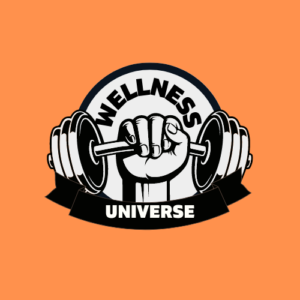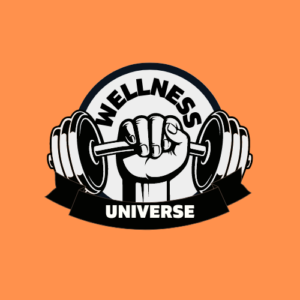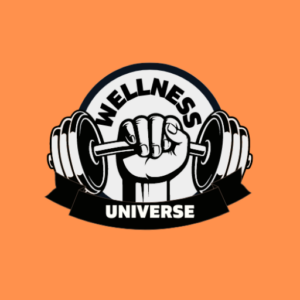How much water should you drink per day?

Delving beyond the conventional wisdom of “8 glasses a day,” Welcome to an exploration of personalized hydration in “Beyond 8 Glasses: The Personalized Guide to Your Daily Water Needs.” Are you curious about unraveling the intricacies of your body’s unique thirst? This article unveils the tailored approach to quenching your body’s specific hydration requirements.
In this guide, we venture into the factors influencing individual hydration needs, from age and weight to climate and activity levels. Join us as we decode your body’s cues, revealing how it communicates its need for replenishment.
Together, we’ll navigate personalized strategies and the significance of water-rich foods, empowering you to sustain optimal hydration levels for your well-being. Prepare to discover the secrets to staying hydrated beyond the conventional norms. Welcome to a journey “Beyond 8 Glasses.”
Understanding Daily Water Needs

Understanding the body’s daily water needs is crucial for maintaining overall health and well-being. Water serves as a vital component necessary for various bodily functions. It plays a key role in regulating body temperature, aiding in digestion, transporting nutrients throughout the body, and eliminating waste products.
Contrary to the common belief that a standard “eight glasses a day” of water fits everyone’s needs, individual hydration requirements differ significantly. Factors such as age, body weight, climate, and level of physical activity influence how much water a person needs. Children, adults, and seniors have different hydration needs, and body weight can affect the necessary intake. Additionally, environmental factors like hot weather or engaging in strenuous activities may increase fluid loss, necessitating higher water intake.
Recognizing these factors is essential in understanding that a one-size-fits-all approach to water intake does not apply. Instead, an individualized approach considering these diverse factors is crucial for determining the appropriate amount of water needed for optimal health.
Importance of water for the body’s functions
| Body Function | Importance of Water |
| Temperature Regulation | Water helps regulate body temperature through sweating and heat dissipation. |
| Nutrient Transport | It serves as a solvent, aiding in the transport of nutrients and minerals in the body’s cells and systems. |
| Digestion | Water plays a critical role in breaking down food and facilitating the digestive process. |
| Waste Removal | It helps in the elimination of waste products through urine, sweat, and bowel movements. |
| Joint Lubrication | Water acts as a lubricant for joints and supports smooth movement and cushioning. |
| Cognitive Functions | Proper hydration is essential for optimal brain function and cognitive abilities. |
| Cell Function | Water is involved in cellular processes, including metabolism and cellular health. |
How Much Water Do You Really Need?
| Factors | Approximate Water Intake Recommendations |
| Age | Children (1-8 years old): About 4-6 cups (32-48 ounces) per day
Adults (men and women): Around 8-12 cups (64-96 ounces) per day |
| Body Weight | General guideline: Consume about 0.5 to 1 ounce of water per pound of body weight. For example, a person weighing 150 pounds would aim for 75-150 ounces daily. |
| Climate | Hot or humid climate: Increase intake to compensate for additional sweating. Aim for higher end of recommendations. |
| Activity Level | Moderate exercise: Add 1-2 cups (8-16 ounces) of water for every hour of exercise. Higher intensity or longer workouts may require more. |
| Overall Health Status | Health conditions or medications impacting hydration may require adjustments in intake. Consult a healthcare professional for personalized recommendations. |
Methods to determine individual water needs (calculators, indicators, etc.)
Below I am giving a few methods collectively or individually, individuals can gain insights into their hydration needs and adjust their water intake accordingly for better health and well-being.
Hydration Calculators:
- Online tools or mobile apps designed to estimate an individual’s water needs based on specific input data.
- Factors considered may include age, weight, activity level, climate, and other personal details to generate tailored hydration recommendations.
- Users input their information, and the calculator provides approximate daily water intake suggestions.
Body Weight-Based Formulas:
- Recommendations based on body weight, suggesting a certain amount of water intake per pound or kilogram of body weight.
- Commonly cited guideline suggests consuming 0.5 to 1 ounce of water per pound of body weight.
- Allows for a general estimation of water needs, although individual variations may apply.
Thirst and Urine Color Indicators:
- Thirst Cues: Encouraging individuals to drink water in response to feeling thirsty.
- However, relying solely on thirst cues might not always accurately reflect actual hydration needs, particularly in older adults or during certain health conditions.
- Urine Color: Monitoring urine color as an indicator of hydration status; lighter urine typically indicates adequate hydration, while darker urine may signal the need for increased fluid intake.
Sweat Rate Measurement:
- Primarily applicable to athletes or those engaged in intense physical activity.
- Involves measuring sweat rate by weighing oneself before and after exercise and adjusting fluid intake to maintain hydration levels during workouts.
Diet Analysis:
- Evaluating water intake derived from food sources, particularly water-rich foods like fruits and vegetables.
- Complements direct water consumption and contributes to overall hydration.
Consultation with Healthcare Professionals:
- Seeking guidance from nutritionists, dietitians, or healthcare providers for personalized recommendations.
- Healthcare professionals can consider individual health conditions, lifestyle factors, and specific needs to offer tailored advice on optimal hydration.
Using these methods collectively or individually, individuals can gain insights into their hydration needs and adjust their water intake accordingly for better health and well-being.
Tips for Staying Hydrated Throughout the Day:
Proper hydration is essential for overall health. Here are effective tips to ensure you stay hydrated throughout the day:
Carry a Reusable Water Bottle: Keeping a refillable water bottle with you serves as a visual reminder to drink water regularly. It encourages consistent hydration and makes it convenient to sip on water wherever you go.
Set Reminders or Schedule Water Breaks: Establish a routine by setting alarms or reminders on your phone or watch prompts at regular intervals for hydration, especially if you tend to get caught up in daily activities and forget to drink enough water.
Drink Before You’re Thirsty: Thirst is a late indicator of dehydration. Aim to sip water consistently throughout the day rather than waiting until you feel thirsty. This habit helps maintain proper hydration levels.
Hydrate with Infused Water or Herbal Teas: Enhance the taste and appeal of water by infusing it with fruits like berries, citrus slices, or herbs like mint or basil. Herbal teas also provide hydration with added health benefits.
Monitor Your Urine Color: Checking the color of your urine can serve as a simple indicator of hydration levels. Light-colored urine indicates adequate hydration, while darker urine may indicate the need to drink more water.
Include Water-Rich Foods in Your Diet: Consume foods that have high water content, such as watermelon, cucumbers, oranges, strawberries, lettuce, and soups. These foods supplement hydration and contribute to overall water intake.
Limit Dehydrating Beverages: Reduce the consumption of dehydrating beverages like caffeinated drinks and alcohol, as they can increase water loss and contribute to dehydration.
Importance of Incorporating Water-Rich Foods and Beverages:
Ensuring adequate hydration isn’t just about drinking water; incorporating water-rich foods and beverages into your diet is equally crucial. Here’s why it matters:
Supplemental Hydration Source: Water-rich foods and beverages offer an additional source of hydration, contributing to meeting daily fluid intake goals and supporting overall hydration levels.
Nutrient Density: Many water-rich foods, including fruits, vegetables, and certain soups, provide essential vitamins, minerals, and antioxidants. They not only hydrate but also offer valuable nutrients necessary for optimal health.
Satiety and Weight Management: Water-rich foods often have high fiber content, promoting a feeling of fullness and aiding in weight management by controlling calorie intake while providing essential nutrients.
Variety in Hydration Sources: Incorporating a diverse range of water-rich foods and beverages ensures diversity in hydration sources, contributing to meeting hydration needs while enjoying a variety of flavors and nutrients.
Conclusion
Maintaining adequate hydration throughout the day stands as a cornerstone of overall health and vitality. The strategies outlined earlier encapsulate effective ways to ensure proper hydration levels, emphasizing the importance of incorporating water-rich foods and beverages into daily routines.
The array of Tips for Staying Hydrated offers practical guidance to individuals seeking to optimize their hydration levels:
Implementing habits such as carrying a reusable water bottle serves as a constant reminder to drink water regularly, fostering consistent hydration. Setting reminders or establishing a schedule for water breaks aids in punctuating the day with necessary hydration intervals, especially for those engrossed in daily tasks. Proactively drinking water, even before feeling thirsty, is key, as thirst can sometimes lag behind actual dehydration. The infusion of flavor through herbal teas or fruit-infused water not only enhances the taste but also encourages regular hydration
Thank you for joining us on this fitness journey! We hope you found our blog insightful and inspiring. Our aim is to provide you with valuable information, expert advice, and motivational content to support you in your wellness endeavors.
Related Lifestyle Post-
- Pillow Talk: Why Chiropractors Recommend Specific Pillows
- Why Self-Compassion Is the Key to Your Well-Being
- Boost Your VO2 Max
- How Many Steps Do I Really Need a Day?

Meet Pradeep Singh, your go-to guide for all things fitness, health, and motivation. With over 7 years in the field, Pradeep brings a blend of expertise and real-world experience to his writing. From workout tips to healthy living insights, he simplifies complex topics, making fitness accessible for everyone. His authentic approach and genuine passion aim to inspire and support your wellness journey. Get ready to embark on a path to a healthier lifestyle with Pradeep as your trusted companion and motivator.






















